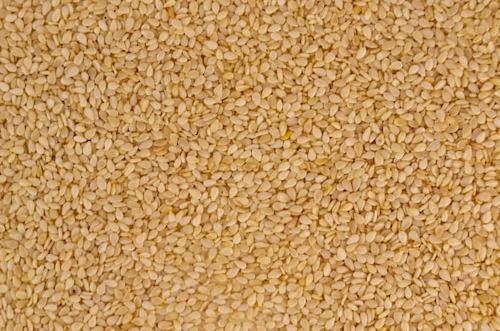W46 Sesame Seed Update: Huangdao Port in China Reports Significant MoM Increase in Sesame Seed Inventory and Price, while Global Initiatives Target Sesame Cultivation Expansion and Market Shifts

Huangdao Port Reports 19.80% MoM Increase in Sesame Seed Inventory
As of November 15, 2023, Huangdao Port in China reported a sesame seed inventory of 156.70 thousand metric tons (mt), showing a 19.80% month-on-month (MoM) and 21.15% year-on-year (YoY) increase. Increased trade activities for sesame seeds from Pakistan, Tanzania, and Mozambique, coupled with heightened demand, contributed to a slight price rise of USD 6.93 per metric ton to USD 13.87/mt (RMB 50/mt to RMB 100/mt), with expectations of sustained elevated prices due to escalating sourcing costs.
India Launches Incentive Scheme to Expand Geographical Indication-Tagged Cultivation, Boosting Onattukara Sesame Cultivation
Efforts are underway to expand the cultivation of Geographical indication-tagged Onattukara sesame, with Indian authorities introducing an incentive scheme within Thekkekara Krishi Bhavan limits. Farmers will receive financial assistance of USD 0.48 (INR 40) for a cent of land (40.5 squared meters) for cultivating sesame seeds, and the initiative involves collaboration between the local Krishi Bhavan, Onattukara Vikasana Agency, and the Onattukara Regional Agricultural Research Station. The project aims to boost sesame cultivation, offering incentives to individuals, farming collectives, self-help groups, and joint liability groups, with plans to increase the cultivation area to 2 thousand hectares (ha) in the region.
European Union Sesame Seed Market Adapts to Health Concerns and Allergies, Faces Shift in Demand and Import Trends
Furthermore, the European Union's (EU) sesame seed market has witnessed a transition due to health concerns and increased sesame-related allergies, leading to a decline in demand and a shift in import trends. Import figures for 2023 indicate signs of recovery, but returning to previous consumption levels may take time as consumers prioritize safety and quality. Stakeholders are urged to maintain agility, adaptability, and a focus on consumer health concerns while upholding stringent food safety standards in the supply chain.
Eritrea and Ethiopia Collaborate with FAO to Tackle Crop Production Challenges
Lastly, agricultural experts from Eritrea, Ethiopia, and the Food and Agriculture Organization (FAO) of the United Nations collaborated in a 4-day validation workshop in Bishoftu, Ethiopia, to address challenges in crop production and productivity. The studies focused on sesame, wheat, sorghum in Eritrea and maize, wheat, and teff in Ethiopia, revealing obstacles like policy gaps, limited services, moisture stresses, pests, mechanization issues, and inadequate access to finance and markets, leading to recommendations for interventions in seed systems, soil fertility, water management, and pre-and post-harvest loss control, emphasizing the importance of agricultural extension services, policy development, and efficient marketing systems.